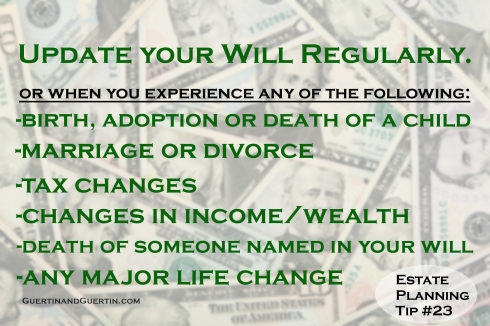Selecting a nursing home for a loved one is one of the most important and difficult decisions that you may be asked to make. This decision is usually made during a time of crisis, frequently when a family member is ready to leave the hospital after a serious illness or operation. It would be easier on everyone if this decision could be planned for. However this is usually not the case. Just remember, be nice to your kids… they are going to pick out your nursing home. I jokingly tell my parents that their nursing home choice will be based on their behavior at the time.
The first issue to decide is whether or not a nursing home is really necessary. Would some type of home services be adequate? This issue should be discussed with your physician, as well as other healthcare providers. There are many types of services available for people who choose to remain at home, such as home health care, adult day care centers, respite care (where another person can provide the caregiver some relief to allow for shopping, errands, or just a little “down time”) and hospice in-home care.
An option for those individuals who do not need the level of care that nursing homes provide is an Assisted Living Community. These communities provide many of the benefits of a skilled nursing facility but in a more home-like setting. They do not provide skilled nursing care, but will assist the resident in various activities such as dispensing medication, cleaning their room or apartment, providing meals, as well as various activities. Often the monthly cost of these communities is considerably less expensive than skilled nursing facilities, and may have special programs and special living arrangements for folks with cognitive impairments like dementia
Once it has been determined that an individual needs care in a nursing home you should allow that person, if they are able, to be a part of the process of selecting a facility. Ask professionals in the field, friends or acquaintances who have been in a similar situation for information. The Connecticut State Agency on Aging has an Ombudsman program that can provide information on particular nursing homes, however you should also visit different homes to see what they are like. Talk to staff members, other residents and their families. You should visit each home more than once and at different times of the day. Ask if they have activities for the residents. Ask to see menus for daily meals. Also, ask what the costs are at each home. Another thing you may want to do is to just walk around the home and observe the condition of the facility and the residents.
Nursing homes have their own doctors. You should find out about the doctors, their credentials, how often they visit and if they are willing to meet with the family to discuss plans for treatment.
Federal law requires that residents have the right to be free from restraints administered for the purpose of discipline or convenience and not required to treat medical conditions. If you see residents in restraints, you should question the facilities staff about the nursing home’s policy on restraints.
Be sure to visit more than one nursing home before you decide. You can be on a waiting list at many homes and then choose the home you want. A little advanced planning can save you from having to make a quick decision when you are forced to find a nursing home in an emergency.
Helpful Links:
Ombudsman Program at Connecticut State Agency on Aging
Connecticut’s Long Term Care Services and Supports Website
US News & World Report Top Connecticut Nursing Homes
If you have questions that you’d like answered in a future blog post, email me at marc@guertinlaw.net.










